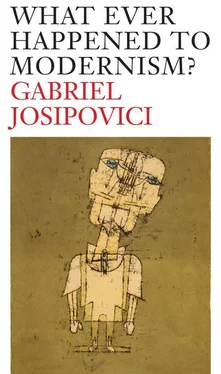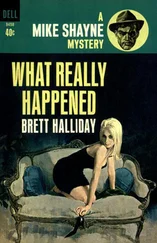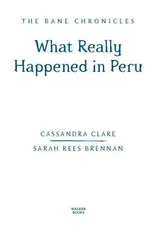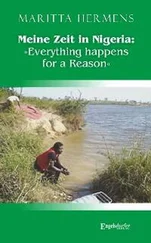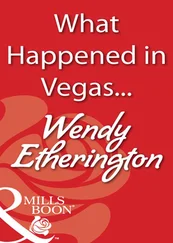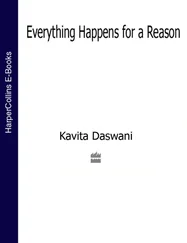The Hothouse by the East River (i), (ii)
Steinberg, Leo (i), (ii)
Stendhal (i)
Stevens, Wallace (i), (ii), (iii), (iv), (v), (vi)
‘The Comedian as the Letter C’ ( Harmonium ) (i), (ii), (iii)
Stieglitz, Joseph (i), (ii)
Stockhausen, Karlheinz (i)
Stoppard, Tom (i)
stories of Modernism (i)
purism and prescriptive nature (i), (ii), (iii)
story-telling
and novel (i), (ii)
and painting (i)
see also anecdotal
Stravinsky, Igor (i), (ii), (iii)
Adorno on (i), (ii), (iii)
on Beethoven (i)
Les Noces (i)
Oedipus Rex opera (i), (ii)
Pulcinella (i)
Le Sacre du printemps (i)
subjectivity
as explanation for Modernism (i)
and Greek tragedy (i), (ii), (iii)
and music (i)
see also individualism of Modern era; self
subversion of tradition (i)
Swift, Jonathan, A Tale of a Tub (i)
Sylvester, David (i), (ii), (iii), (iv), (v), (vi), (vii)
Tal-Coat, Pierre (i)
tense, passé simple in novel (i), (ii)
theatre
Modernist break with tradition (i)
see also Greek tragedy
Thirlwell, Adam, Miss Herbert (i), (ii)
Thomas, Keith (i), (ii)
Thwaite, Anthony (i)
token-signs see signs and Modernism
Tolkien, J.R.R. (i)
Tolstoy, Leo
Anna Karenina (i), (ii)
on Mallarmé (i), (ii)
Toynbee, Philip (i)
tradition
boredom with (i)
denial of genre (i), (ii), (iii)
landscape and break with tradition (i), (ii), (iii), (iv), (v)
as limiting force (i)
Modernist subversion (i)
tragedy see Greek tragedy
Tragic Hero as translators' invention (i)
transition to Modern era (i)
translations and meaning (i), (ii)
Updike, John (i)
Valéry, Paul (i), (ii), (iii)
Van Gogh, Vincent (i), (ii)
Verdi, Giuseppe (i), (ii)
Vertov, Dziga: Man with a Movie Camera (i)
views of Modernism see stories of Modernism
Waugh, Evelyn (i), (ii), (iii)
weariness
boredom threshold (i)
of writers (i), (ii), (iii)
Weber, Max (i), (ii)
Werfel, Franz (i)
will and sin (i)
Williams, William Carlos (i)
Wilson, Angus (i), (ii), (iii)
Hemlock and After (i), (ii), (iii)
Wittgenstein, Ludwig (i), (ii), (iii)
On Certainty (i)
Wodehouse, P.G. (i), (ii), (iii), (iv)
Woolf, Virginia (i), (ii), (iii), (iv), (v), (vi), (vii)
To the Lighthouse (i)
Wordsworth, William (i), (ii), (iii), (iv), (v)
‘The Boy of Winander’ (i), (ii)
break with genre (i), (ii), (iii)
European sensibility (i)
‘Lines Left upon a Seat in a Yew-Tree’ (i)
‘Lucy’ poems (i)
Lyrical Ballads Preface (i), (ii)
nature and experience in (i), (ii), (iii)
‘A Night-Piece’ (i)
‘Nutting’ (i), (ii), (iii)
The Prelude (i), (ii), (iii), (iv)
world view
as obstacle to understanding Greek tragedy (i)
self and place in world (i), (ii), (iii)
variant world pictures (i)
writers see authors
Zwingli, Huldrych (i), (ii)
Thanks first of all to Naomi Segal, director of the Institute for Advanced Studies, University of London, for inviting me to give the lecture which was the germ for the present book, and to Alan Jenkins at the Times Literary Supplement for encouraging me to provide him with a shortened version of it, and for many discussions of the nature and implications of Modernism over the years. Thanks, too, to George Craig for reading a draft of my lecture with his usual meticulousness and critical acumen, but even more for forty years of stimulating conversation about every aspect of literature from Rabelais to Beckett. Rosalind Belben read the completed typescript with a writer's eye and a care which, though I have to a certain extent grown used to it over the years, never fails to fill me with wonder. Stephen Mitchelmore, Julian Bell, Jeremy Lane and Timothy Hyman also read the script and were generous with their comments, criticism and encouragement. With all of them this was but a stage in a conversation about art and about Modernism which has been going on for a very long time, and which, as Sancho Panza says, will never be done. They have saved me from many errors and gently suggested ways in which the book could be improved. And Michael Wood, at a late stage, professed enthusiasm for the project while harbouring grave reservations about some portions of the typescript. As a result of his criticism I hope I have produced a better book. To all of them I am profoundly grateful. Last but not least, Tamar Miller kept me from taking myself too seriously while never doubting the seriousness of the enterprise.
For permission to reprint copyright material the author and publishers gratefully acknowledge the following: Random House, Inc. and Faber and Faber Ltd for lines from The Collected Poems of Wallace Stevens (1954); Faber and Faber Ltd for lines from The Complete Poems and Plays of T.S. Eliot (1970); Chatto & Windus for extracts from On Aristototle and Greek Tragedy (1962) by John Jones; Farrar Straus and Giroux for extracts from The Picasso Papers (1998) by Rosalind E. Krauss; Harvill Secker for lines from Cervantes' Don Quixote translated by Edith Grossman (2004).
